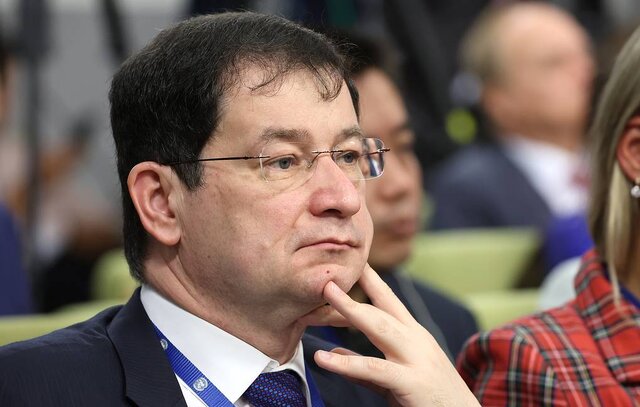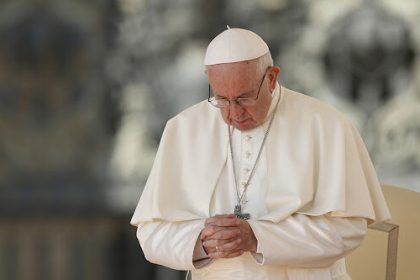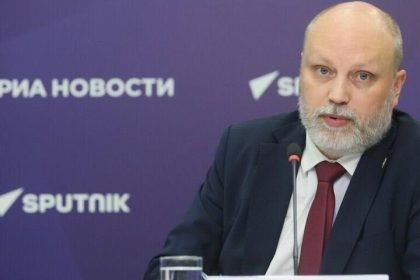The plan “Agreement for the Future” was approved in the United Nations
The United Nations General Assembly approved a plan called “Agreement for the Future” or “Future Agreement”.
According to Isna, the United Nations General Assembly approved the said plan on Sunday to help the countries of the world, which are increasingly separated, to face the challenges of the 21st century, such as climate change, artificial intelligence control, intensifying conflicts and increasing inequality. Poverty gathers together.
According to the Associated Press, the upcoming 42-page treaty challenges the leaders of the 193 UN member states to turn promises into concrete actions and make beneficial changes in the lives of more than 8 billion people around the world.
The agreement was approved at the opening of the two-day “Future Summit” at the invitation of UN Secretary-General Antonio Guterres, who thanked the leaders and diplomats for taking the first steps and opening the “doors” to a better future.
“We are here to bring multilateralism back from the brink,” Guterres said in his opening remarks. Now it is our common destiny to overcome it.”
“Implement the agreement,” the UN chief told world leaders. Prioritize dialogue and negotiation. End the “wars that are tearing our world apart” from the Middle East to Ukraine to Sudan. Reform the powerful UN Security Council. Explain the reforms in the international financial system. Increase transition from fossil fuels. “Listen to the words of the youth and involve them in decision-making.”
The fate of the agreement was in question until the last moment. According to UN spokesman Stephane Dujarric, Guterres had prepared three speeches, one for approval of the plan, one for rejection and one for ambiguous terms.
The widespread opposition of countries to this plan
But this plan was opposed by the representatives of Russia and other countries.
Russian Deputy Foreign Minister Sergei Vershinin said: “No one is happy with this agreement.”
At an upcoming UN meeting, he said a number of delegations did not support the text, which was submitted in violation of procedure. The senior Russian diplomat suggested Philemon Young, the new president of the 78th UN General Assembly, to postpone the vote on the document until all its provisions are agreed.
After rejecting the Russian amendment, Vershinin said that Russia was moving away from the consensus on the future treaty and the Digital Global Compact. He said that this is especially related to disarmament regulations, issues related to the participation of non-governmental organizations in the activities of the Office of the United Nations High Commissioner for Human Rights.
On the other hand, according to the report of the Russian News agency “Tass”, Dmitry Polyansky, the first deputy permanent representative of Russia to the United Nations, strongly condemned the future treaty and considered it a blow to the world organization.
He wrote on the X social network: “Unfortunately, there is nothing good in the future plan approved by the United Nations. They have usurped the negotiations from the very beginning and the majority of the “jungle”, like a herd, did not find enough courage to protest and defend their rights.”
According to the Russian diplomat, the treaty is unbalanced and contains very dangerous provisions that will be counterproductive and commit the multi-party and intergovernmental nature of the United Nations to paper in the UN Charter.
He stressed: “This is a big blow to the whole organization.
Poliansky noted: “As a result, there was no inclusive negotiation process in the normal sense of the term.” The new president of the 78th General Assembly of the United Nations, Philemon Young, tried to correct the situation, but it was too late.
On the other hand, Brazilian President Inácio Lula da Silva said: “While the crisis of the global governance system requires structural changes, the UN General Assembly has lost its function.”
“We lack ambition and courage,” he said at the upcoming summit at the UN headquarters. The pandemic, the conflicts in Europe and the Middle East, the arms race, the climate change crisis have revealed the limitations of multilateral formats.
“The General Assembly has lost its ability, the legitimacy of the Security Council is undermined every time it uses the double standards of silence in the face of crimes,” the Brazilian president stressed.
However, the summit began with Vershinin’s proposed reforms, which Western media claimed would significantly weaken the pact. The Republic of Congo, on behalf of the 54 African countries that opposed the Russian reforms, opposed a motion not to vote on the reforms. However, Iran, Belarus, North Korea, Nicaragua, Sudan and Syria supported Russia’s proposals.
Finally, this plan was approved by the positive vote of 193 members of the United Nations.
The agreement includes 56 paragraphs on issues including poverty eradication, climate change mitigation, achieving gender equality, promoting peace and protecting civilians, and reinvigorating the multilateral system to “seize the opportunities of today and tomorrow.”
The UN Secretary-General outlined a number of key provisions of the Future Compact and its two accompanying annexes, a Global Digital Compact and the Future Generations Declaration.
The pact commits world leaders to reform the 15-member Security Council, to make it more reflective of today’s world and to “redress the historical injustice against Africa.”
“It is also the first agreed multilateral support for nuclear disarmament in more than a decade, and commits to taking steps to prevent an arms race in space and control the use of lethal autonomous weapons,” Guterres said.
The UN Secretary-General said the Digital Global Compact “contains the first truly global agreement on the international governance of artificial intelligence.”
The agreement commits leaders to establish an international independent scientific panel at the United Nations to advance scientific understanding of artificial intelligence, its risks and opportunities. It also commits the United Nations to launch a global dialogue on AI governance with all key actors.
On human rights, Guterres said: “In the face of increasing misogyny and the rollback of women’s reproductive rights, governments have made a clear commitment to remove the legal, social and economic barriers that prevent women and girls from realizing their potential.”
end of message
RCO NEWS
RCO

















